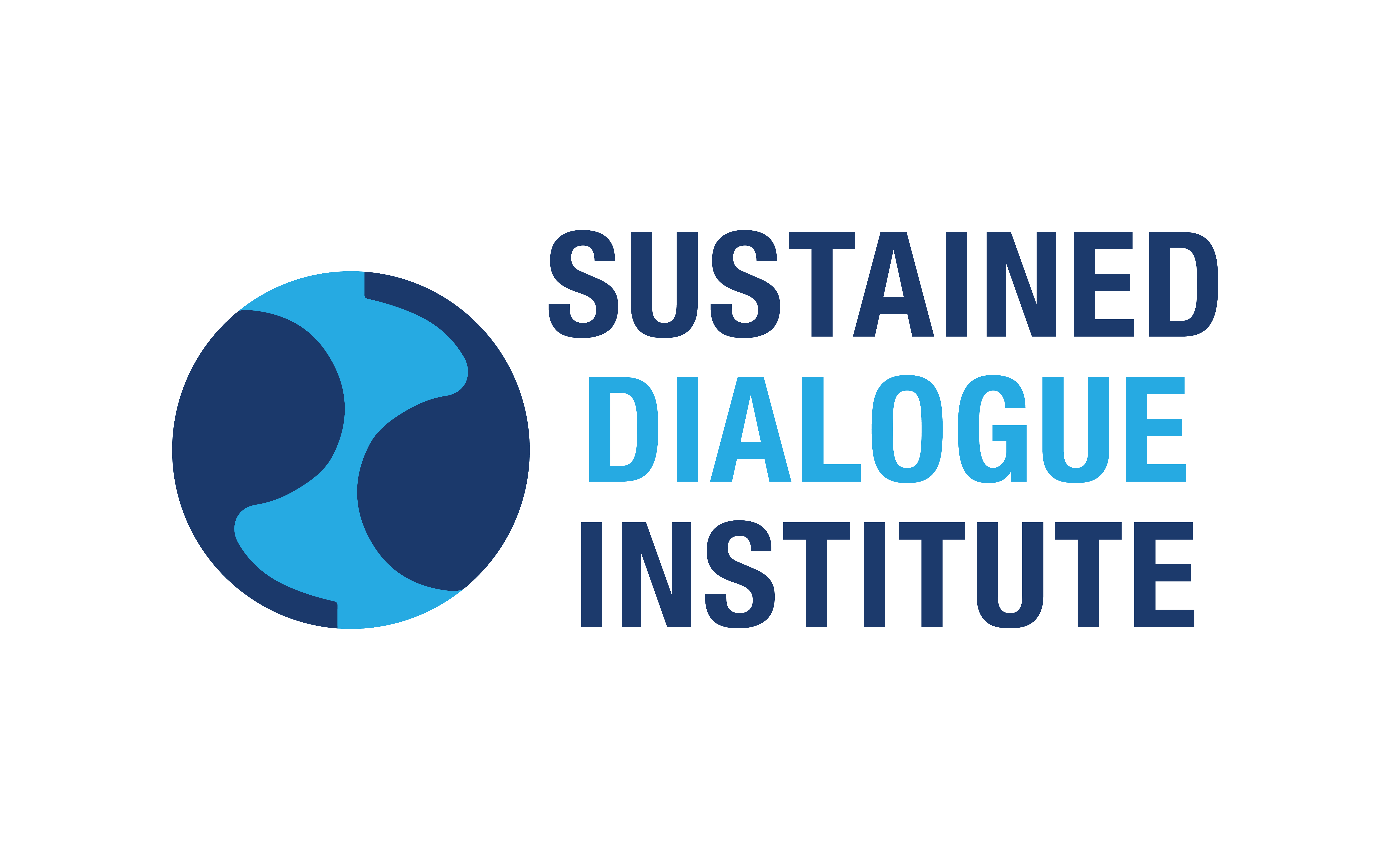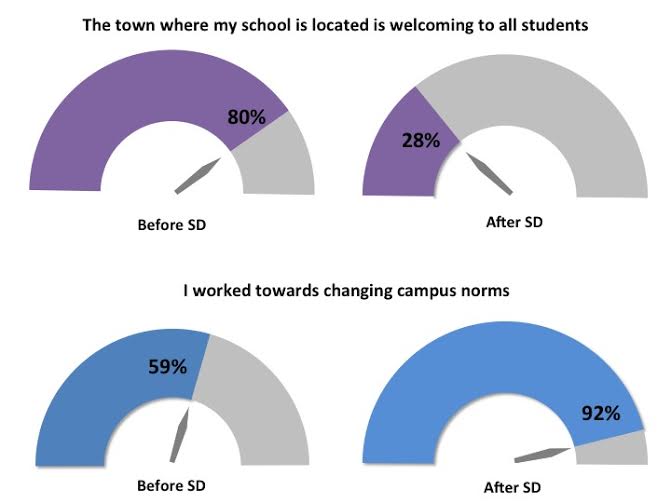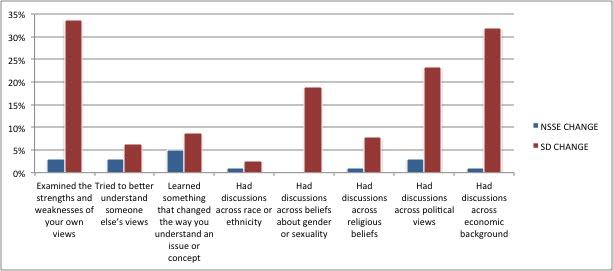What impact should campuses using SD expect?
Through Sustained Dialogue high impact experiences, participants develop a diverse set of leadership skills, including strong personal identity awareness, knowledge of social justice, empathy, facilitation and conflict resolution skills, and more.
Sustained Dialogue’s Impact After Graduation
This study, conducted in 2008, interviewed college graduates who had participated in Sustained Dialogue programs in college. Previous research had demonstrated the positive impacts of dialogue during college, but this study asked “How do recent college graduates understand the influence of their college dialogue experience on their post-graduate civic life?”
Their participation impacted them in five different ways:
- Cognitions: Academic pursuits, critical thinking, new ways of thinking about diversity, etc.
- Behaviors: Involvement in diversity initiatives at work or in graduate school, engaged in politics, major life decisions, etc.
- Attitudes: Motivation and interest in diversity issues, more empathetic, more open with others, changed values about social issues, etc.
- Skills: For relating to others, and for reflecting about themselves.
- Hopes and Plans for the Future: Plans to attend graduate school or live abroad, engagement in local community, plans to use dialogue in the workplace.
Participants stated that SD impacted many of their major life decisions and how they want to raise their own children. This study found that participants developed civic skills that they used at work and in graduate school, and that these skills permeated their personal lives as well. One participant says: “It’s just a part of me and it changes how I look at things.”
* Diaz, Ande and Rachael Perrault. “Sustained Dialogue and Civic Life: Post-College Impacts” Michigan Journal of Community Service Learning. (Fall 2010). Available at: http://www.sdcampusnetwork.org/ht/a/GetDocumentAction/i/11205
Impact internationally:
In a randomized field trial* conducted comparing two-term SD participants at Addis Ababa University in Ethiopia with students who did not participate, the study found statistically significant attitudinal change:
- A decrease in mistrust
- An increase in trust between people of different ethnic origin
- An increased sense of ethnic identity
- An increased perception of being ethnically discriminated
- An increase in accommodative feelings towards students of other ethnicities leading to resulting positive relationships
* Svensson, Isak and Karen Brounéus. “Dialogue and interethnic trust: A randomized field trial of ‘sustained dialogue’ in Ethiopia.” Journal of Peace Research (August 20, 2013): 1-13. Available at: http://jpr.sagepub.com/content/early/2013/08/19/0022343313492989
SDCN also conducts pre- and post- dialogue surveys for student participants based on key measures from questions similar to The National Survey on Student Engagement, NSSE, and the Consortium on Financing Higher Education, COFHE. These surveys demonstrate:
Participants saw strong increases in some of their personal skills and/or actions because of their time in dialogue, including, but not limited to:
- Meeting new people (75% to 93%)
- Developing, understanding, and expressing their personal beliefs (82% to 87%)
- Explaining the college climate toward diversity, issues that may arise between students, and why issues persist (70% to 81%)
- Thinking critically about the experiences of others and how they might be improved (86% to 90%)
- Talking about their experiences in front of a group of their peers (81% to 84%)
- Having serious conversations with people who are very different from them in terms of race and ethnicity (72% to 76%), gender and sexual orientation (63% to 68%), and religious beliefs, political opinions, and personal values (69% to 73%)
- Taking steps if a friend, roommate, classmate, or professor makes a biased or hurtful comment (76% to 79%; 58% to 67%)
- Talking about diversity-related issues with friends (84% to 88%)
- Using inclusive language (80% to 87%)
Before and After SD: How much do you agree with the statement:
Compared with NSSE statistics, total percentages of participants who responded “Very often” or “Often” to the following questions were as such:


